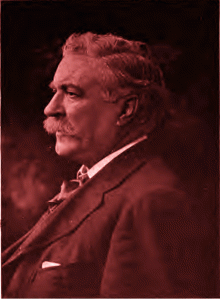“In this way I have now reported in all upon nearly a hundred cases, and I have advised prosecution in only six, and in all of these have convictions been obtained. It has, of course, been left to the police to prosecute as they chose on my report in twenty-two cases, and they have refrained from the prosecution in all but seven cases, and of these the bills were ignored in two cases by grand juries, in four light sentences were passed summarily or at sessions for com- mon assaults, and in one case punishment, probably well deserved, was obtained on a charge of wounding another person. In the remainder, about sixty-six, I have advised that no effort at prosecution should be entertained for a moment, and the police have aquiesced in my advice. I say, concerning the number of the last class, ‘about sixty-six,’ because a number of the cases involved charges concerning two children, so that reckoning from the number of plaintiffs there would be a larger number of cases than if the statistics were taken from a list of defendants, and one case in particular will show how curiously important this may be.” In a further analysis he says:–
“Excluding the special groups I have already alluded to, and a few others, to be excepted for various but not important reasons, I find I am left with a list of nearly fifty, in which there was not the slightest surgical evidence of an assault of any kind having been committed; and from the fact that only in some five or six was the question of a charge on the reduced count even entertained, it must be clear that the amount of manufactured charges of this kind is most alarmingly large. In twenty-six cases there was evidence quite satisfactory that the charges were trumped up from evil motive and in twenty-one the evidence was all in favour of accidental inducements, the children having been seen to be fondled by men of suspicious appearance The first fact that strikes one about these cases is that the average age of the first group of children was within a small fraction of twelve years, whilst the average age of the second group is only seven years. A second material fact is that whilst the second group contains a considerable proportion of children of respectable and even well-to-do people, the former group is entirely composed of children of the lowest class of the population.”
BLACKMAIL.
HE further states:–
“There are at least twenty cases on my list where no assault was committed, nor could have any been, consistently with the story and the appearances found, in which blackmailing was deliberately attempted; and I regret to say in many it was successful. One of the most outrageous was a charge of completely successful assault on a girl of fifteen, alleged to have been accomplished at 11 a.m. on one of the iron spiral staircases in the Municipal Art Gallery. The complainant described the place and gave the date and hour with a precision which was remarkable, as also was her description of what took place. She described accurately the attendant, whom she charged by name. Only two things were against her–she was uninjured, and the attendance books of the institution showed conclusively that the defendant had not been at the gallery that day.”
“WANDERING SERVANTS” AND FEMALE VIGILANCE COMMITTEES.
THE following passage from his paper throws some light on the origin of many of these charges:–
“The charges in a very large proportion of cases were distinctly based on motives sometimes of the most extraordinary kind, and in the great bulk these motives were malevolent. The ‘wandering servant’ motive is one of the least harmful, and accounts for a small number. To those who do not understand the phrase I may explain that it simply means that a girl who may have been quite innocently dawdling about till past the hour of return rigidly enforced by a strict mistress, does not go home, but wanders about all night or sleeps in an outhouse. She is either found by the police or goes back home in the morning and concocts on the way a story of rape, particularised by the most minute details, not one of which is corroborated on examination, nor can the police find a scrap of evidence in support of her story. Yet she becomes the interesting prey of some Vigilance Committee, and it is more by good luck than by good guiding, as the Scotch say, that she does not pick out and name some unfortunate man for the gratification of the prurient curiosity of the fussy women who have taken up her case. In one of these cases brought to me the interesting wanderer by misfortune, selected as her victim the husband of the chairwoman of her committee, and thus trouble came upon her and the committee was dissolved.”
FORCING A MAN TO MARRY.
IN the following cases the facts are instructive as showing the use to which such charges may be put:–
“In one of the cases I regret having advised a prosecution, though technically I was quite right in doing so and bound to do it; but now I have no doubt whatever that the assault was arranged and encouraged, and but for an untimely interruption something more would have followed. The charge preferred was laid solely for the purpose of bringing an unwilling bridegroom to the altar. This effect it had, for on the prosecutrix declaring in the witness-box that if he would keep his engagement and marry her she would with- draw the charge, a sympathetic judge advised him to take the offer, which he unwillingly did under pressure of receiving a nominal sentence. The subsequent history of this couple has convinced me the whole thing was a plant on the unfortunate man.”
SPECULATIVE ATTORNEYS AND MILLINERS [TRIFLERS.]
IN some of the cases he examined the question of age was important:–
“In a very few of these cases prosecution was not advised and not undertaken by the police on the question of either real or apparent age. The wording of the Criminal Law Amendment Act is made to supply a few of the omissions of the old law concerning rape, and in raising the age under which the consent of the female participator is not recognised, the Act puts the dangerous weapon into the hands of that person of showing that she des not appear to be sixteen. This is a fertile source of blackmailing, because a girl of fifteen and a half has only to get a man to have connection with her, or to attempt it, and he is at her mercy. If he will pay up his defence is easily arranged by the speculative attorney who is always at the back door of such cases. He has only to plead that he had a discussion with the girl about her age, that he reasonably believed she was over sixteen, and a little skilful millinery displayed in the witness-box settles the release of the defendant. But if he won’t pay up then the milliner can make the prosecutrix look much under sixteen, and a heavy sentence is the result. To give an opinion on the part of a skilled expert that a girl is or is not under fourteen, the usual molimenal [puberty] age, is a matter of infinite ease compared to giving an opinion that the girl is or is not under sixteen. Maturity has been reached, and the changes at fifteen and sixteen are far less than at thirteen and fourteen, a very important fact which has been forgotten.”
THE MOTIVE OF MALICE.
THE following passages show that spite is often as potent a motive in these charges as blackmail:–
“There is another and still more dangerous element in these cases, and that is the malice of persons, always women, who practically get up the cases or provoke them, and with this may be placed a few subsidiary influences which may well be classed with this. A few examples of some of them will be given in detail.
“Two children were brought to me (case 56), aged fourteen and eleven and a-half respectively, living in the same set of back houses in a well-known and fairly respectable street, the elder girl looking much older than her ascertained age. The person against whom the charge was made was the father of the older girl, and she made the charge that she found her father indecently assaulting the younger girl. She told the neighbours and the neighbours brought in the police. The younger girl proved to be quite uninjured, but it speedily came out that the elder girl was her own father’s regular mistress for more than two years. The girl who was the cause of this action was one of the most virulent little minxes I ever saw, and she made no secret of her reason for splitting [ratting] on her father being the fact that she found him taking up with another girl. I have included this little wretch as one of the habitual prostitutes, but I do not believe she comes under the definition. She does afford, however, a perfect example of how the great bulk of these charges are brought about.”
FEMALE REVENGE ON FATHER OR HUSBAND.
THE following shows that a similar horrible charge may be brought against an innocent man:–
“Two little wretches, of ten and twelve, who had been thrashed by their father for stealing, promptly turned round on him with a charge of having ‘seduced’ them both, giving here an interesting example of female revenge of the direst kind, attempted at an unusually early age. The charge had not the slightest foundation, and they admitted as much when they found they were not believed. Stepmothers give frequent examples of the same abominable attempts to punish their husbands by trumping up such charges, and in three instances mothers used even their own children as the instruments of their diabolical designs.”
PREJUDICE AGAINST ACCUSED.
As to the prejudice accusations of sexual crime incite, Dr. Lawson Tait says:–
“Matters are such under this unrighteous combination that how- ever men may laugh at it and make jokes, they do not willingly travel with single unknown female companions in railway carriages. They know very well that for a man to have the finger of a woman pointed at him with a charge of a sexual offence is to secure that man’s extinction, no matter what the verdict of a jury may be. In 1881 (Lond. Med. Gazette ) a case was tried in which a girl, to shield herself against her equal share of guilt, charged her partner in it with the crime of rape. The jury could hardly be got to acquit the innocent man even though the prosecutrix had to admit that she never called out, her mother sleeping in the next room, because she was afraid her cries would waken the old lady.”
The following indicates strongly one of the disadvantages the undefended prisoner labours under:
DANGER OF RULE ALLOWING UNDEFENDED PRISONER TO GIVE EVIDENCE.
“This new arrangement by which a defendant is allowed to go into the box and give evidence on his own behalf is most mischievous when a poor prisoner is undefended. His poverty involves ignorance, of necessity, and in the hands of a prosecuting barrister his slightest slip in cross-examination will be made to tell against him mercilessly. That is the case if he elects to be sworn. If, on the contrary, he declines, either from ignorance or fear, the jury invariably reckons the fact against him. “I sat through a case quite lately and saw a poor ignorant wretch who, being undefended, did not understand the purport of the invitation, neglected this opportunity. The judge charged clearly in his favour–indeed, there was hardly any evidence against him. But the jury brought him in guilty, and in talking the matter over with one of them after I learned that they were much impressed by the fact that he did not give evidence.”
In considering the results arrived at by Dr. Lawson Tait we must bear in mind that the series of charges he analysed had all been brought under the notice of the police. The vast number of charges compromised for money, without any appeal to the police, must be added to form any fair estimate of the situation. The foregoing catalogue as regards specific crimes is striking enough, but it does not quite exhaust the criminal law privileges of women. As regards punishment, prison treatment and pardon, there are come additional immunities.
1. PRIVILEGE AS TO PUNISHMENT.
(a) Flogging.
The sacrosanct hide of female fiends must not he touched with the lash. Consequently, a wretch who tortures for years innocent children–like the Montague wild beast–must not be flogged. The female garrotter must not be flogged. By express enactment no one but a male call he sentenced to corporal punishment.
(b) Hanging.
As has already been shown the punishment of hanging has been practically abolished for women who murder mere men. If they murder some other woman or babies of some other woman it is quite a different thing. They are, however, exempt from hangings if they murder their own babies.
(c) Duration of Imprisonment.
In every case the duration of the term of imprisonment passed on a female offender is, as everyone knows, enormously less than the punishment imposed on a man for a similar or a lesser offence.
2. PRIVILEGE AS TO PRISON TREATMENT.
(a) Flogging.
Under no circumstances can a female prisoner he flogged for breaches of prison discipline. Men and boys can be, and are, flogged like dogs for the most trivial disrespect to the governor and other officials.
(b) Less Rigid Discipline.
In one of the convict prisons a strike of female prisoners was announced against some disciplinary regulation to which they objected. The obnoxious regulation was rescinded. If they had been men they would have been flogged into submission. (Riot at Wormwood Scrubbs, 1894.)
(c) Lighter Labour.
This is quite apart from the fact that they are assigned much less toilsome forms of labour.
3. PRIVILEGE AS REGARDS PARDON.
The comparative facility with which remission or commutation of sentence on female criminals can be procured is known to every solicitor conversant with Criminal Law Procedure –not merely in cases of infanticide– but in all cases of crimes of violence, the chances of pardon are immeasurably greater than in the case of a male.
















